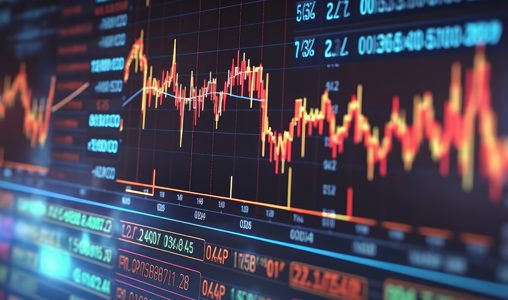The digital revolution is transforming financial markets
The infrastructure of European financial markets is undergoing a radical transformation as a result of major technological, operational and regulatory changes.
The advent of the digital age has completely revolutionised trading systems as well as the role, ability and behaviour of traders on the financial markets. Automation allows traders to perform their tasks more predictably and efficiently, leading to faster decisions supported by more accurate data. Algos, Machine Learning (ML), Big Data Analysis, Artificial Intelligence (AI) and Blockchain are just some of the challenges traders are facing today. This evolving scenario begs the question as to whether and how the trader's role can and should be reshaped and which new skills need to be added to the traditional ones.
Adaptability, versatility, flexibility and curiosity are now key components of the trading skills. Being a trader means first of all being eager to learn about the factors that impact trading activity: from new regulatory requirements to market infrastructure transformations, such as new trading protocols, new types of orders and new market participants.
In recent years, we have witnessed a process of globalisation in the investment choices, as well as a trend to shift from a single-asset to a multi-asset trading approach supported by the search of more common points between the various asset classes with a view to streamlining technology and processes. Market Hub, the Multi-Asset Agency Execution Specialist for institutional clients of the Intesa Sanpaolo Group, embodies this new trading philosophy.
In the past, brokers were mainly required to be familiar with economic data analysis, market trend forecasts, trading rules and operational risks and to develop interpersonal skills to deal with clients and internal stakeholders.
Nowadays, brokers are also requested with different skills that allow them to address new challenges: from better programming skills (Python, SQL, etc.), to deeper focus on data visualisation and analysis (Tableau/Power BI) and finally to a better understanding of Internet connection protocols and communication facilities (FIX, FDC3 and API connectivity).

In this scenario, it is important to develop a strong collaborative relationship between different functions and offices: trading desks, compliance offices and structures dealing with technology and innovation. To create value from this collaborative relationships, it is crucial to share a similar professional language and also to allow mobility between the offices themselves, albeit within the realm of each individual specialisation.
However, there is currently a skills gap with respect to the speed of the changes taking place and bridging such gap requires on one hand new skills to be created for existing traders through an upskilling process, and, on the other hand, new traders to work in trading rooms with profiles other than the traditional ones.
Over the past two decades, university courses in finance and economics have been supplemented with academic programmes that were once aimed solely at computer engineering and mathematics courses. Finance and economics degrees have shifted towards a new hybrid between innovative quantum courses and traditional courses. In parallel with changes in university education, learning programmes have also been developed within financial institutions.
A modern trading room requires a variety of skills, combined with curiosity, adaptability and a great deal of training. The human role is still central, in order to monitor the responses provided by technological devices, develop them and infer the actions to be carried out on the basis of their results. Finally, there is still a strong need for experienced people who know how to identify and interpret machine output, but are aware also of the risks and opportunities and can carefully verify its effects.